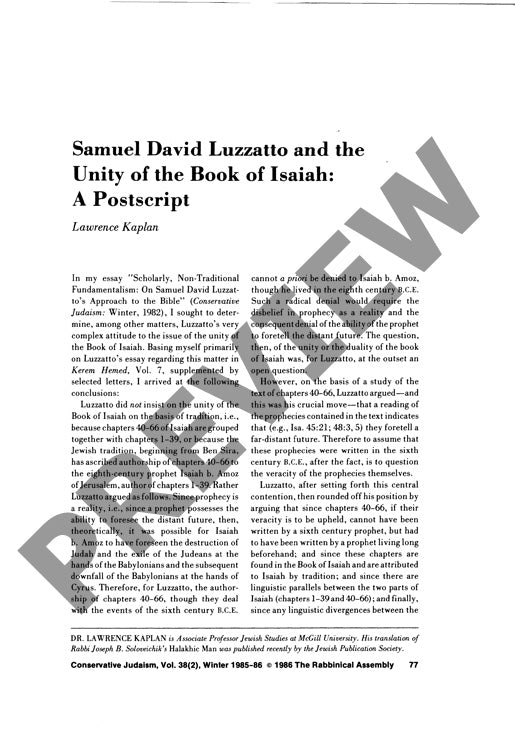Samuel David Luzzatto and the Unity of T
Couldn't load pickup availability
Samuel David Luzzatto's defense of the Book of Isaiah's unity emerged not from blind adherence to tradition, but from his conviction in authentic prophetic foresight. Through analysis of previously overlooked correspondence between Luzzatto and Solomon Judah Rappaport (Shir), alongside Luzzatto's published essay in Kerem Hemed, a nuanced picture emerges of how nineteenth-century Jewish scholars wrestled with emerging biblical criticism. Luzzatto drew careful distinctions between different challenges to Isaianic unity—firmly rejecting rationalist arguments that cast biblical authors as deceivers while remaining open to textual and linguistic evidence. When confronted with Shir's sophisticated argument dating Isaiah 40-66 to the sixth century BCE, which preserved prophetic integrity by reading these chapters as contemporary rather than predictive prophecies, Luzzatto displayed telling ambivalence. While maintaining his general opposition to multiple authorship theories, he acknowledged the religious acceptability of Shir's specific approach. This scholarly exchange reveals how traditional Jewish intellectuals navigated between religious conviction and critical scholarship, demonstrating that Luzzatto's primary concern lay in defending prophetic authenticity rather than specific authorship claims.

More Information
-
Physical Description
-
Publication Information
Published 1985-1986
ISBN
-
Publication Credits
Lawrence Kaplan

